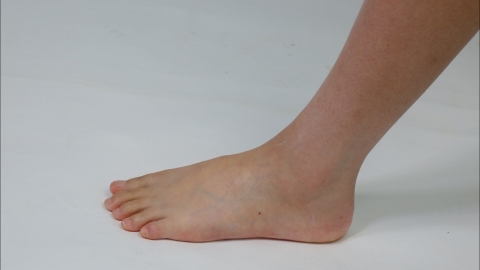What should I do if my feet are swollen from overexertion?
Generally, foot swelling caused by excessive exercise may result from poor local blood circulation, post-exercise tissue edema, soft tissue injury in the foot, lower limb varicose veins, or acute gouty arthritis. It is recommended to seek medical attention promptly, identify the underlying cause, and then improve symptoms under a doctor's guidance through general treatments, medications, etc. Specific causes are analyzed as follows:

1. Poor local blood circulation: During exercise, the feet endure continuous pressure, causing blood vessels to dilate. After exercise, slowed blood return leads to blood pooling in the feet, resulting in swelling. Immediately stop exercising, sit or lie down, and elevate both feet above heart level for 15–20 minutes per session to promote blood return.
2. Post-exercise tissue edema: Repeated stretching of foot muscles and fascia during exercise causes slight fluid leakage into tissue spaces, leading to foot swelling, often accompanied by mild soreness or tightness. Soak feet in warm water for 10–15 minutes after exercise, keeping the water temperature between 38–40°C, to help relax foot tissues.
3. Soft tissue injury in the foot: Accidental sprains or impacts during exercise can damage soft tissues such as muscles and ligaments, causing local bleeding and edema, manifesting as foot swelling and pain. Patients should apply medications such as diclofenac diethylamine gel, Yunnan Baiyao aerosol, or safflower oil on the affected area as directed by a physician to relieve pain and swelling.
4. Lower limb varicose veins: Individuals with pre-existing venous valve insufficiency in the lower limbs experience increased venous return burden during exercise, leading to blood pooling in the legs and feet, causing foot swelling that worsens after prolonged standing. Patients may take medications such as micronized purified flavonoid fraction tablets, diosmin tablets, or calcium dobesilate capsules as prescribed to improve venous circulation.
5. Acute gouty arthritis attack: Exercise accelerates metabolism, affecting uric acid excretion. Urate crystals deposit in foot joints, triggering inflammation and causing foot swelling and severe pain. Patients should take medications such as colchicine tablets, etoricoxib tablets, or allopurinol tablets under medical supervision to control inflammation and reduce uric acid levels.
Before daily exercise, adequate warm-up is essential. Wear appropriate athletic shoes and gradually increase exercise intensity to avoid sudden high-intensity workouts. After exercise, gently stretch foot muscles to promote blood circulation and reduce the likelihood of foot swelling.






